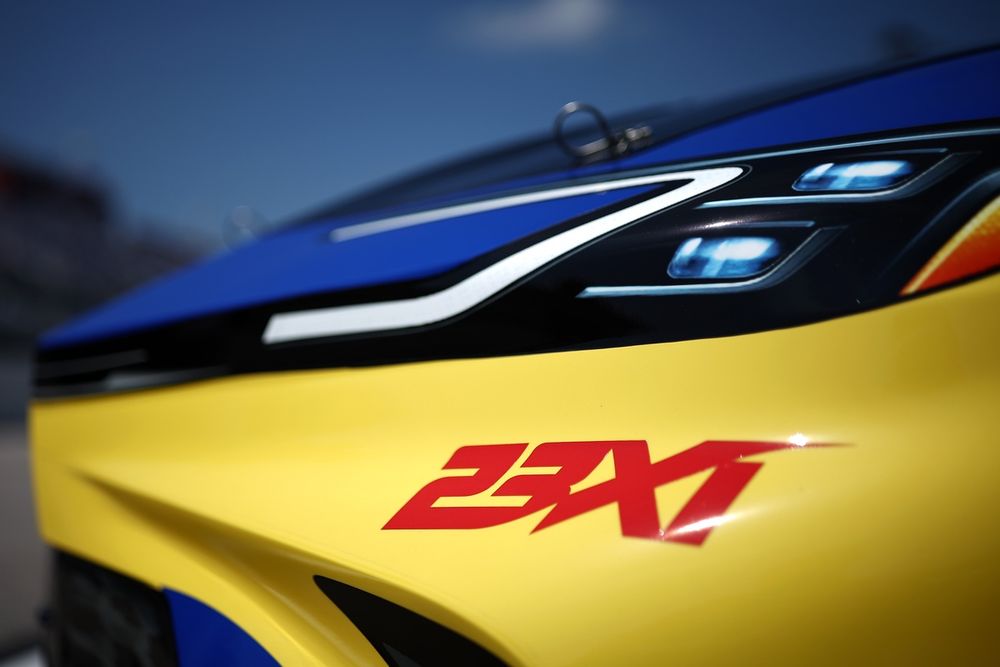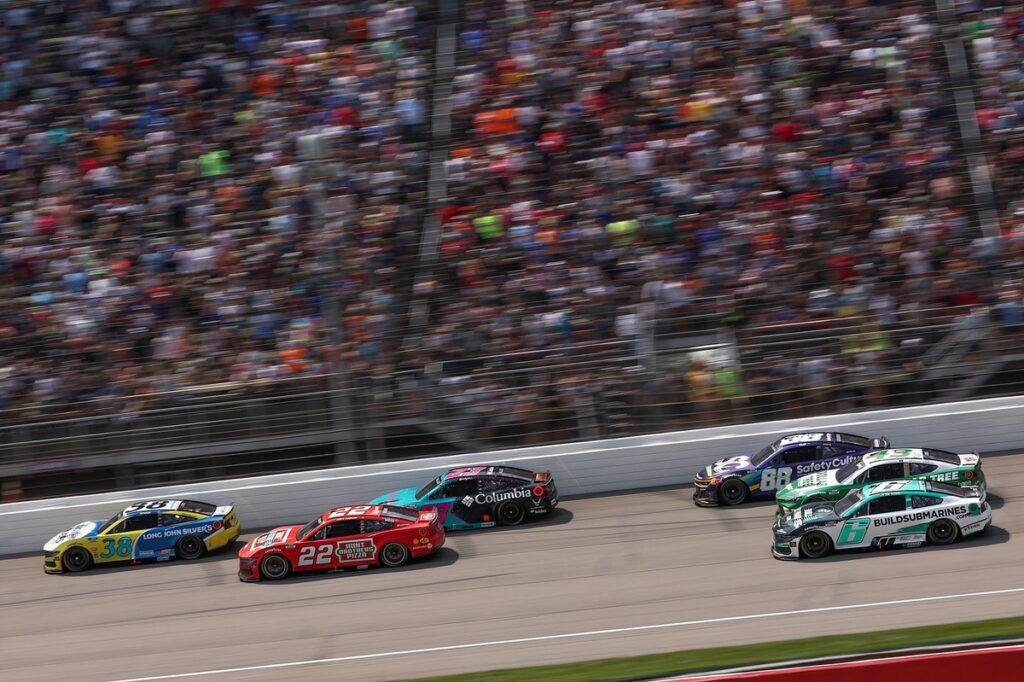The federal district judge overseeing the 23XI Racing and Front Row Motorsports v NASCAR federal antitrust lawsuit has ruled against the teams over an injunction request that would have restored their de facto chartered status and prevented the Sanctioning Body from issuing charters to other organizations.
“The Court concludes that in light of NASCAR’s renewed commitments to the Court, a Preliminary Injunction limited to preventing the reissuance / sale of the disputed Charters is not necessary or appropriate, even for the very short time until a jury decides the merits of Plaintiffs’ claims.”
In other words, with NASCAR agreeing to release up to four more additional charters beyond the original 36, saving six for 23XI Racing and Front Row Motorsports in case they win at trial, imminent harm will not come to those teams in the interim.
This is all regarding the 2026 season as NASCAR has also stated in a previous filing that no charters will be transferred or sold through the end of this season.
Judge Kenneth D. Bell wrote that he would consider any new charters to be issued to different teams — including one the Sanctioning Body says it has agreed to terms over — would come from these new charters 37, 38, 39 and 40.
Chase Elliott, Hendrick Motorsports Chevrolet, Austin Dillon, Richard Childress Racing Chevrolet, Bubba Wallace, 23XI Racing Toyota, Noah Gragson, Front Row Motorsports Ford
Photo by: Sean Gardner / Getty Images
Those four new charters, in addition to the two Stewart-Haas Racing charters that each team purchased one of, would result in NASCAR having up to 40 charters in circulation with three open slots in each race for a full field up to 43.
“NASCAR contends that it has an unencumbered right to sell or transfer the Charters that Plaintiffs declined to sign or purchased. However, it confirms that it is willing not to sell or convey the 2025 Charters previously owned by Stewart-Haas Racing and will not sell, convey or lease more than four ‘additional’ Charters beyond the 30 active and 6 disputed but previously issued Charters (that is, in the Court’s view, any new Charters would be Nos. 37 – 40 until the dispute is resolved).”
Even though NASCAR no longer has to acknowledge 23XI and Front Row as the current rights holders of the two former SHR charters, they are in a sort of limbo right now since that team no longer exists to buy them back. This injunction also means that NASCAR still does not have to acknowledge 23XI and FRM as having acquired those charters.
Should 23XI and Front Row lose at trial, NASCAR has stated an intent to reimburse the teams what they paid SHR for them in the first place.
“Plaintiffs also complain about NASCAR’s refusal to acknowledge their ownership of the Charters purchased from the Stewart-Haas team. However, the Court need not resolve that ownership claim in this Order. The Parties’ rights and obligations with respect to those Charters will be determined after trial.”
In other words again, Judge Bell ruled that NASCAR has done enough to ensure that imminent harm will not come to 23XI and FRM in ensuring that they will make every race for the rest of the season while also leaving them six charters for a possible post trial outcome.
Should the teams win their case, they can ask the court to receive whatever value they believe they have lost in damages. Again from the court’s ruling:
“Based on NASCAR’s representations with respect to issuing new Charters, which it says will leave the Court ‘free to exercise such equitable remedies as it deems appropriate’ in the event that Plaintiffs prevail at trial, there will be no irreparable harm to Plaintiffs if an injunction is denied. Therefore, the Motion for a Preliminary Injunction will be DENIED.”

23XI Racing logo
Photo by: Jared C. Tilton/Getty Images
As was argued in December, which led to Judge Bell issuing an injunction that led to the teams being recognized as de facto chartered until it was overturned by an Appeals Court in June, 23XI and Front Row argued that opt-out clauses in the contracts of drivers like Tyler Reddick and sponsors could be triggered if the teams did not have charter holding status.
The court determined that was unlikely given this is September and in the middle of the season with a trial set for December.
And with NASCAR no longer paying the two teams charter money for their six cars since June, whatever lost value those teams ultimately incur due to losing those charters would also be covered by their damages should they prevail after trial.
“And, again, the loss of the ‘fixed’ Charter payouts and the uncertainty of ongoing relationships with drivers and sponsors can either be compensated with money damages at trial or is simply inherent in the risks associated with the lawsuit. What will happen for the 2026 racing season will remain unsettled for everyone involved in the NASCAR Cup Series until after trial (or an earlier resolution among the Parties). Therefore, there is no irreparable harm with respect to the loss of ‘Charter rights’ for the remainder of the 2025 Cup Series.”
The judge also noted that should NASCAR prevail, ‘the disputed Charters formerly assigned to the #23, #35, #45, #4, #34, and #38 cars can be resold or abandoned so that NASCAR is left with only 36 active Charters, if that is its preference.’
NASCAR also told current charter holding teams last week that the teams losing this injunction would result in an additional $1.5 million dollars in payment this season since it would not have to issue that money to 23XI and Front Row.
Bell also wrote that he did not want to rule on the teams’ likelihood of success, a requirement to receive an injunction, because that could persuade the eventual jury sitting over the case. In ruling that there was a lack of irreparable harm, he avoided the issue of success.
NASCAR issued the below statement after the ruling:
“We welcome the court’s decision, which brings much-needed clarity to the remainder of the 2025 NASCAR season. For nearly 80 years, NASCAR and the France family have championed a bold vision by taking many personal and financial risks to build a sport that fuels livelihoods, inspires generations, and delivers world-class competition. That commitment remains unwavering, and we will continue to defend the integrity of NASCAR and preserve the values that have guided its growth. To the fans: We won’t let this lawsuit distract from what matters most — delivering the unforgettable moments you’ve come to expect from our great sport and crowning the next NASCAR Cup Series champion on November 2.”
Jeffrey Kessler, representing 23XI and Front Row, also issued a statement.
“We are grateful that Judge Bell has made clear that the status quo is being maintained — protecting my clients’ rights to regain their charters if they prevail at trial and ensuring their ability to continue racing through the 2025 season based on NASCAR’s commitments. Equally important, Judge Bell reaffirmed his broad power to order meaningful changes in NASCAR should we succeed, so that teams, drivers, sponsors, and fans can benefit from a sport positioned for long-term growth and restored competition. We are ready to present our case at trial in December.”
In a sense, Bell did editorialize the consequences of this case to the sport at large.
“The uncertainty about what the 2026 season will look like unfortunately exists not just for the Parties, but for the other teams, drivers, crews, sponsors, broadcasters and, most regrettably, the fans.”
In this article
Be the first to know and subscribe for real-time news email updates on these topics
Read the full article here


